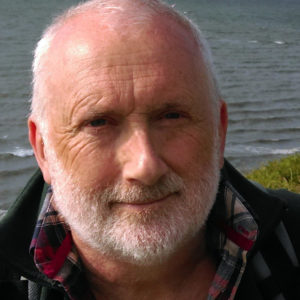Reviews by Jim Green of:
The Myth of Normal: Trauma, Illness and Healing in a Toxic Culture, by Gabor Maté
and
The Consultation: Testimony of Hope by a Man Suffering from Bipolar Disorder and Addiction, by Emmanuel Urbu
In the name of humanity, then, in the name of modesty, in the name of wisdom, I entreat you to place yourselves in the position of those whose sufferings I describe, before you attempt to discuss what course is to be pursued towards them. Feel for them; try to defend them. Be their friends, argue not hostilely.
These are the words of John Perceval, the son of Spencer Perceval, the only British Prime Minister to have been assassinated (in 1812), and the author of Perceval’s Narrative – published in 1840 and then republished in the significant era of the early 1960s by the anthropologist Gregory Bateson. The narrative was the first time that the voice of “the mad” had been widely and formally heard in the public space. For Perceval had been – in his own words – at a certain point in his life “deprived of his reason” and confined over three years in various lunatic asylums – the madhouses that were starting to grow up all over the country. Having recovered – seemingly in spite, rather than as a result of the treatment received – Perceval sets out in his narrative a plea for the intelligent understanding of “the most wretched…of mankind” and their plight. He also recommends to friends, family and would-be healers of those whose minds and lives have “become a ruin” the ways that they can sympathetically respond to and support those who are going through such struggles. Perceval speaks from experience: he decidedly did not get the kind of understanding and care that he yearned for. He wanted to be treated better and in the Narrative he sets out his own prescription for how this might happen.
The voice of the “mad” (both authors of the two books under review would undoubtedly opt for the more accurate “maddened”) in time became the voice of the “psychiatric patient”, the “user of mental health services”, and the “expert by experience”. These voices, as they were modulated and refracted over time and through various media, became much more widely heard, eventually branching off to produce the genre that has been (rather lazily) described as ‘misery memoir’, to include such works as Elizabeth Wurtzel’s Prozac Nation. One of the earlier “patient voices”, though, was that of Mary Barnes. Her book – published in 1971, just after that significant decade of psychiatric and societal self-questioning, the 60s – is called Two Accounts of a Journey Through Madness. This is no ‘mere’ memoir of misery. Its (at that time) unique appeal was that it was co-written by patient and doctor, by the “sufferer” and the healer – in this instance the celebrated psychotherapist Dr Joseph Berke. The result is a story of humility, tenderness, courage, friendship – and healing.
Whether consciously or not, Emmanuel Urbu’s short booklet The Consultation is in this tradition of giving voice to the previously silenced and – like Berke and Barnes’ groundbreaking work – it models a sympathetic, respectful and compassionate relationship between the clinician and the patient who is seeking “a return to personal wholeness”. And again, as in Perceval’s Narrative, we are provided with a picture of what effective healing might look like. As the author’s closing note puts it, the (mere 35) preceding pages are a description of “a fictitious consultation, the one I would have liked to have had 20 years ago.”
What Urbu particularly celebrates in this ideal (but not idealized) consultation is the friendly openness of the healer. He has his doctor say this to him: “So I suggest we team up to work on improving your wellbeing.” The helpful medic then adds that this is “our only goal here” – he’s not especially interested in diagnosis for its own sake. What is also highlighted is the attention to supporting the suffering person both “downstream” and “upstream”. Downstream is about responding to symptoms: managing emotions in the here and now, challenging certain beliefs and behaviours and engaging in “natural activities” such as yoga, creativity, massage, tai chi, physical exercise, and spending time with animals. (Significantly, the only mandatory activity at this fictive clinic is daily meditation.) Upstream is time spent with a “talking therapist”, beginning to discover what has happened, how it has come to this, what I now need to urgently find out about myself. It is the crucial step that must be taken if suffering is to be transformed; life (and each of our lives) must no longer be left unexamined.
Gabor Maté, in his book The Myth of Normal, clearly endorses the kind of approach sketched out in Urbu’s fierce, tender and brief manifesto. Maté takes the reader on an extensive tour of the “downstream”, but he also wants us to accompany him further – much further perhaps than we’ve ever been prepared to go – “upstream”. His implacable analysis of what has gone wrong, and continues to go wrong, with us and with the world, constitutes an upstream journey into the heart of an unspeakably painful darkness. But it’s a journey that he insists we must make if we are to find authentic grounds for hope, for healing – even for joy. The core of Maté’s vision, and the essence of what he wishes each of us to understand, is neatly summed up in the approvingly quoted words of a fellow physician speaking to a patient: “I don’t want you to call what you have a mental illness. You have been injured.” Or, to use another word, you are traumatized.
Gabor Maté is a Hungarian-Canadian physician and author who has specialised in the study and treatment of trauma and addiction. His best-selling books (When the Body Says No: The Cost of Hidden Stress, 2003; In the Realm of Hungry Ghosts: Close Encounters with Addiction, 2008) have made him something of a celebrity doctor and cultural analyst. As has his extensive presence on YouTube and Netflix, where his film The Wisdom of Trauma has been widely viewed. Born in Budapest in 1944, online images of his deeply time-etched face seem like an echo of the movie’s title, and in this book he writes candidly and movingly about his own struggles – his periods of depression and restlessly driven anxiety, his addictions, the self-limiting beliefs and reactivity that arose from his early traumatizing experiences in wartime Eastern Europe. In short, he is ready to acknowledge and accept exactly how he has been injured. AND – most tellingly – he is also aware that “there comes a point when ‘Hitler made me do it’ won’t fly. Responsibility can and must be taken.”
And taking responsibility is the first step leading towards personal liberation. Maté quotes a fellow “traumatologist” (his own word) Bessel van der Kolk (The Body Keeps the Score, 2014): “An unexamined life is not worth living. As long as one doesn’t examine oneself, one is completely subject to whatever one is wired to do, but once you become aware that you have choices, you can exercise those choices.”
And yet it is not enough, this exhilaratingly prophetic book insists, for the liberating journey upstream to simply be a compassionate inquiry into the history and circumstances of purely personal trauma. In fact, Maté wants us to realise that, properly understood, there is no such thing. And, like the Robin Williams psychologist in Good Will Hunting, he is determined to tell us that it is “not your fault”. Our upstream expedition must include, but must also take us beyond our own unique story. It must even go further than the radical and compassionate transformation of the consultation, that place of potential discovery and healing. In the author’s own words, to address the myriad afflictions we are collectively enduring “we need to look through a wider lens at the bigger story.” His urgent message is that we need to understand the global context, the “normal” that we have come to blindly accept and which can only – and inevitably – produce this much individual and collective pain. It is about, he says, “our hurting world, manifesting the illusions and myths of a culture alienated from our essence.”
Within the kind of culture that Maté excoriatingly sets before us there is, of course, what he calls “trauma with a large T” – overwhelming experience of threat and/or abuse – and there is also “trauma with a small t”. The latter is built in to a global culture (readily identified throughout the book as capitalism) which ever more efficiently commodifies both human beings and the natural world. We are trained not to be ourselves, to understand ourselves as needy, competitive individuals, as consumers who need to consume in order to gain the happiness that only the system can provide. We are trained to be addicts. As Thomas Merton succinctly put it, our society asks us to be fake. And that, points out Maté, leaves us profoundly lonely, alienated from each other and from the possibility of authentic selfhood. This fakeness, this unreal half-life that so many of us are living, may only merit a small ‘t’, but it is perhaps the greatest affliction of all.
I don’t know whether Emmanuel Urbu has maintained a meditation practice as part of his recovery. Gabor Maté tells us that he too has discovered meditation – and he’s honest enough to also let us know that he can only manage short periods. Emmanuel has provided us with an important snapshot of what compassionate (and mutual) inquiry into the self can look like in practice. Gabor offers us a magisterial panorama of civilization and its disconnections along with honest and detailed accounts of many personal stories – his own included. They both show us the way forward – a way of courage, hope and friendship. Attending to their vision will bring us closer to the wisdom that is already there within and between us. It will invite us further into self-knowledge and – listening still to Perceval’s entreaty – to argue with each other and with ourselves “not hostilely”.








11 thoughts on “Our Hurting World: Two reviews by Jim Green”
This makes me want to read his book.
Excellent reviews. I have read most of Mayr work. He is humble and wise. Hadn’t heard of Urbu but will find his work. We need to see mental distress within this framework if we are to find true compassion and understanding for our selves and for one another
Your review takes me back to a time in San Francisco where I met Mary Barnes in person and saw a play about her life story which was very popular at the time. It was a wonderful story full of compassion and hope. I must have seen it almost 50 years ago and it touched me so deeply that I have shared her story of recovery and transformation even to this day. Her story was her finding her true sense of self through Christ, a process of self-discovery which she expressed in her paintings.. The extreme kindness and love of those who patiently attended to her during her time of mental illness while she painted, using at first her own excrement, was what gave her the ability to rediscover her humanity and the beauty of her own true nature m.. It is a story I will never forget and that needs to be continually retold.
Four books in fact! All of which I would like to read thanks to your review.
Reading your reviews was like being shown that the door I thought was padlocked is actually easily opened and indeed, ‘the truth will set us all free’.
Thank you..
Greg
Thanks, Greg, for bringing so much to your reading of the reviews. We all need to keep stepping through that door. All best, Jim
Thanks, Greg, for bringing so much to your reading of the reviews. We all need to keep stepping through the door. All best, Jim
Thanks, Jim,
Your review is beautifully written. I am a huge fan of Dr. Gabor Maté, not least because he is a Fratelli Tutti prophet. I feel we so need community. I have so far gifted The Myth of Normal, Trauma, Illness, and Healing in a toxic culture, written by Dr. Maté and his son Daniel Maté to about five people. It’s a big book, so I am waiting to hear how they found this. One good friend was disappointed by this book. She is a functional physician and Compassion Cultivation. Training Meditation Teacher. She agrees totally with Maté’s extraordinarily compassionate, warm, and wise approach and the immense amount of interdisciplinary knowledge they have collated and integrated to share with all of us. When I shared that I was shocked, she agreed she was being slightly harsh. She was hoping that the Matés would have more solutions.
As I very much agree with all the messaging. I would love to see this book recommended to every administrator, healthcare professional, learner and teacher, educator, lawyer, judge, parent, pastoral care person, policy-maker, and politician.
I am starting a “Peace and Joy Rebellion “Book club, and this is one of the first recommended books. I am reading ” The Right to Be Cold, One Woman’s story of protecting her culture, the arctic, and the whole planet ” by Sheila Watt Cloutier. We are blessed with the most amazing Indigenous Writers at this time. I would love to attend an event where The Matés, Sheila, and others share stories of healing trauma. I would love your permission to post your book review, please ?.
Dear Frances – thanks for your full and rich response. It’s good to know that the kind of insights and wisdom that are energising the Matés are being passed around – you are gifting wisely and generously.
As far as posting the review, yes, please go ahead.
All blessings on your work (and play) –
Jim
If people are keen to have a look at Emmanuel Urbu’s short book, which was self-published via Amazon, you can find it using the search terms Emmanuel Urbu Consultation.
A wonderful review Mr Green. As usual you have managed to reflect both the essential message of the author and also recreate the intended milieu through your narrative. Compassion, kindness, openness to the world are essential to inter and intra personal understanding and connection. These principles embody the latest thinking around living experience as a catalyst for recovery and reform. Great review.